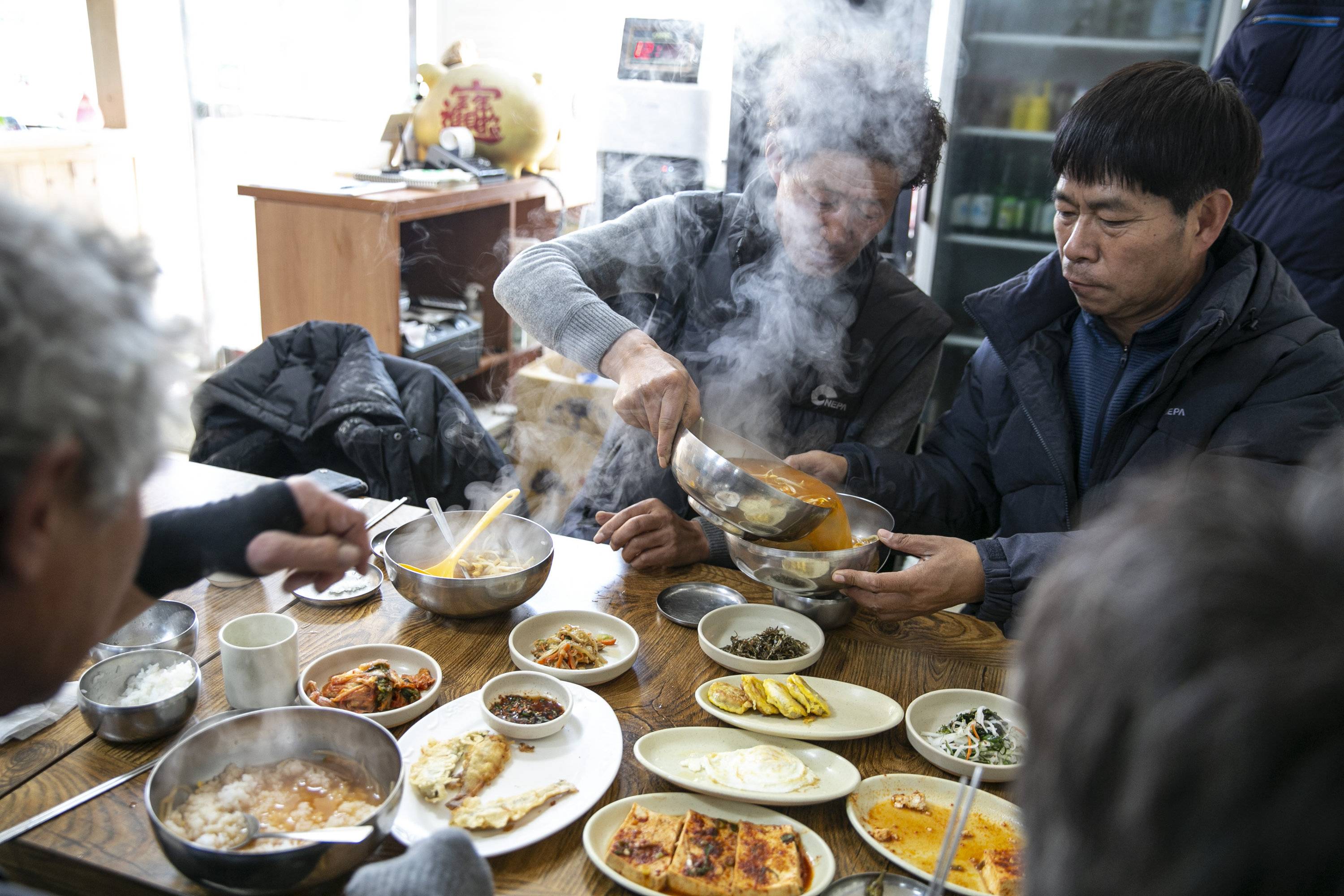Along the border with North Korea is a town where the sad legacy of war is perhaps best understood by looking at the crops in the field.
Standing on a wind-swept plot on a hillside, Han Gi-taek, 69, peered over the land and recalled the hard labor, cold nights and stray land mines that made it difficult for his family to cultivate the ground beneath his feet. First they did it with their bare hands and shovels, he said. In more recent years, it has been done using tractors, with the piles of rocks that ring the field bearing witness to the family’s decades of labor.
Han arrived in this mountain basin on the eastern border with North Korea in 1956, when military trucks unloaded 160 families as new settlers of the war-torn territory. The families, mostly from Korean War refugee camps, were told by the government in the South that they would be allowed to keep the land if they cultivated it for 10 years.



